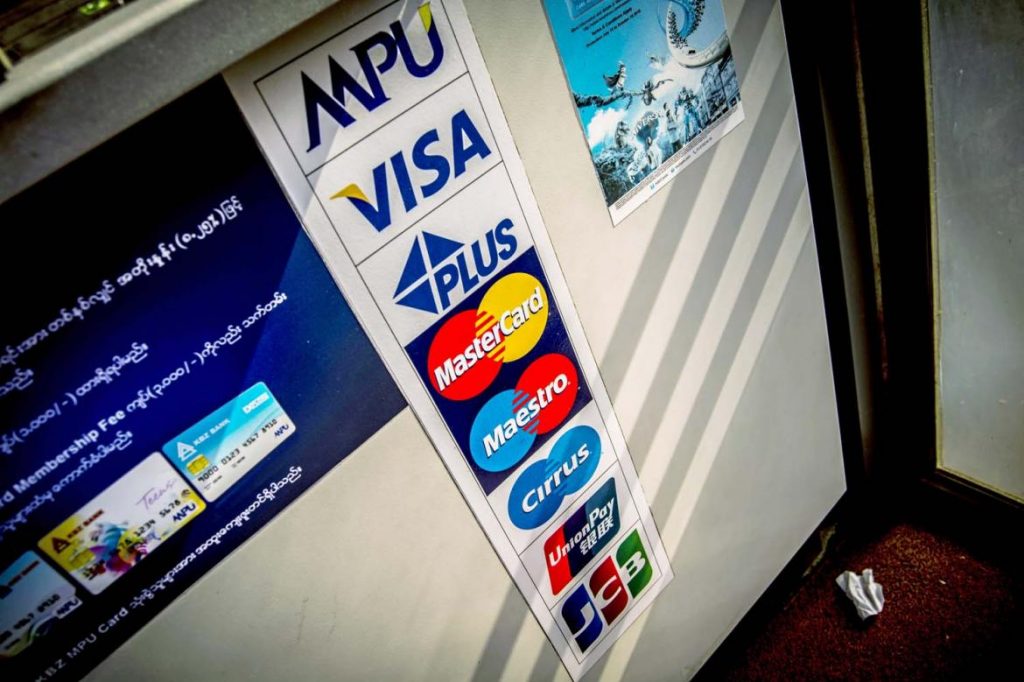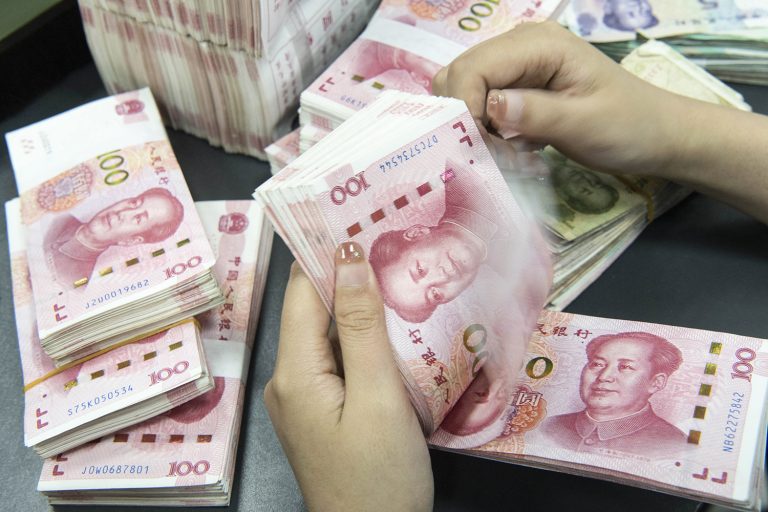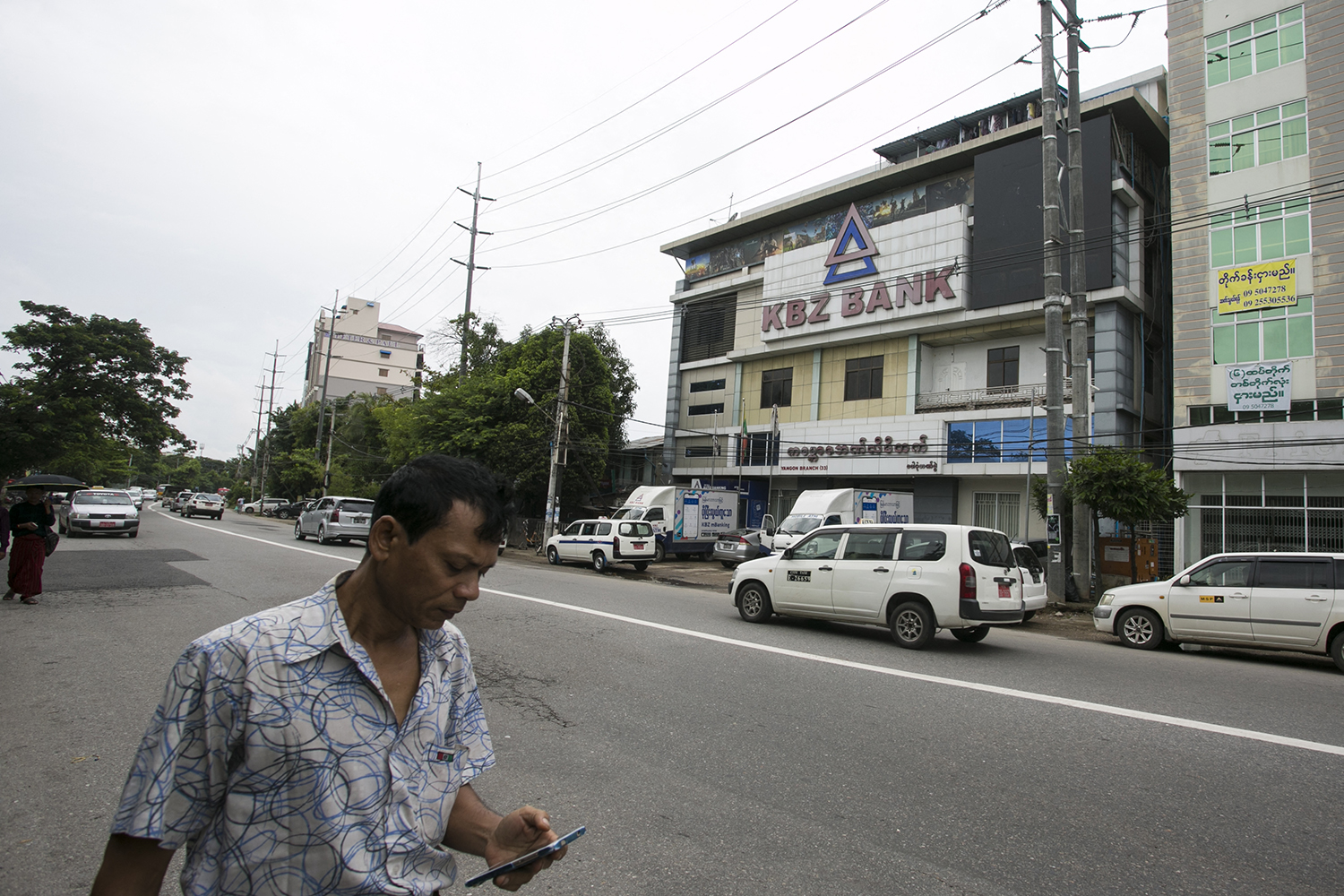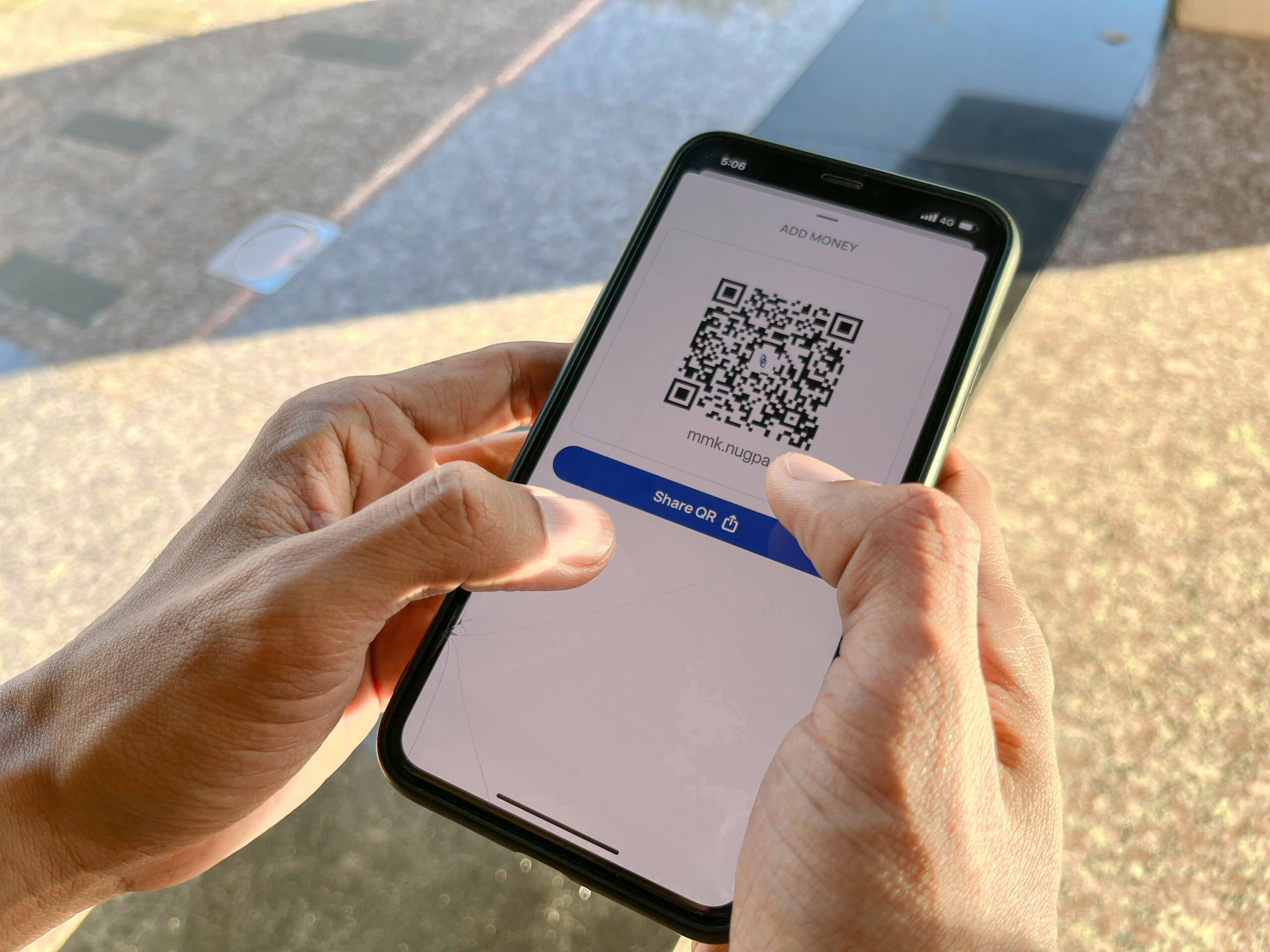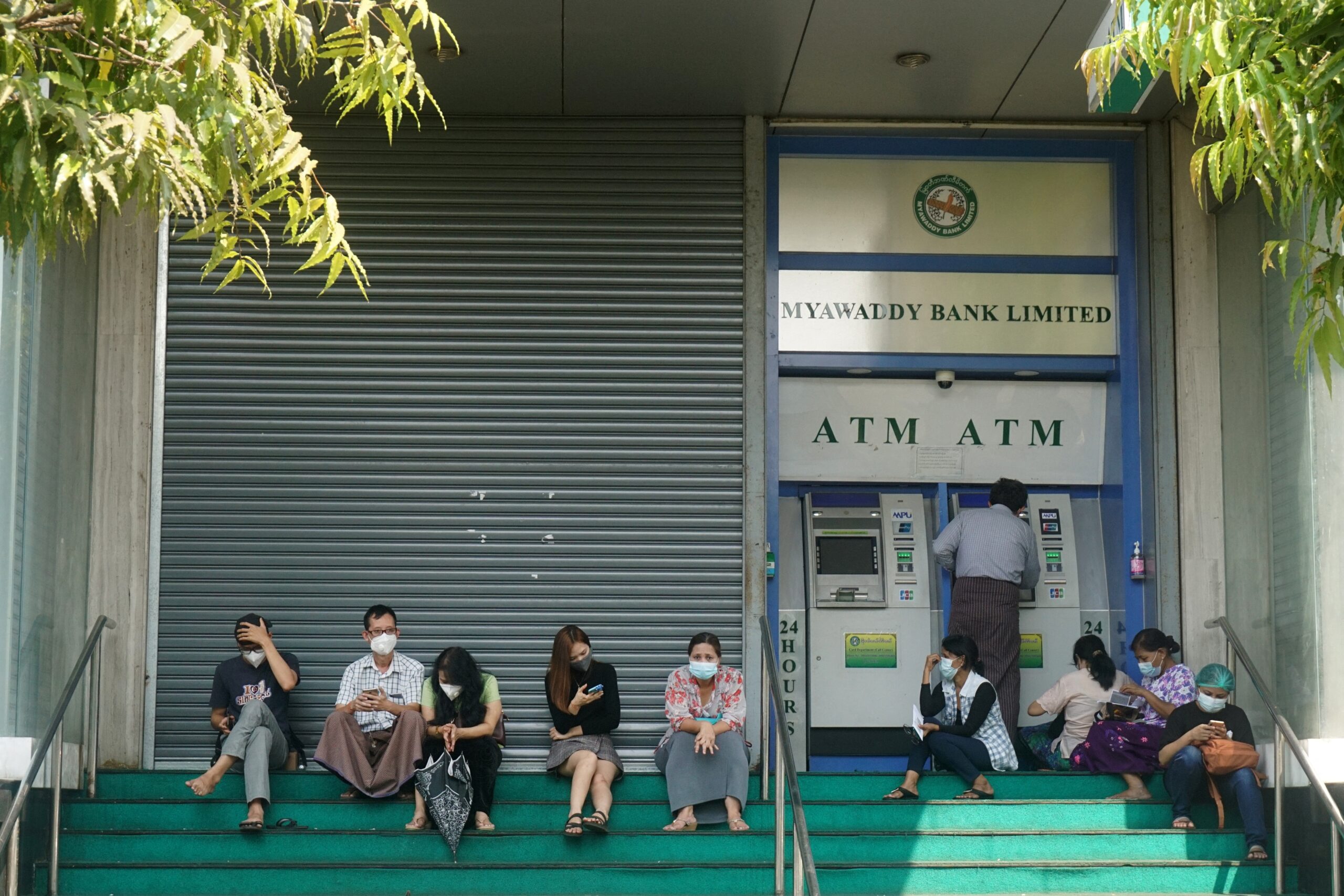In its latest move to prevent the dollarisation of the economy, the Central Bank of Myanmar has banned the domestic use of prepaid cards issued to citizens for use overseas.
By SITHU AUNG MYINT | FRONTIER
Late last month, the Central Bank of Myanmar issued a directive that effectively bans citizens from using in Myanmar the prepaid cards issued by private banks to those intending to travel abroad.
The prepaid cards are issued by private banks in collaboration with payment platforms, such as Visa, MasterCard, UPI and JCB. Users can load up the prepaid card with foreign currencies to spend when travelling overseas, but some have been using them in Myanmar. The July 25 directive instructs businesses such as retailers, restaurants and hotels not to accept the prepaid cards for transactions in kyat. The move by the CBM has left many wondering about its intention, with some speculating that it is aimed at bringing greater stability to the value of the kyat.
Myanmar’s private banks issue debit, credit and prepaid cards to citizens and foreigners. Debit cards are linked to a bank account and can be used at the ATM machines of other member banks of the Myanmar Payment Union. Credit cards have recently been re-introduced for the first time since the 2003 banking crisis. The prepaid cards are issued to citizens planning to travel abroad who have opened an account in which they can deposit a maximum of US$5,000.
The CBM’s decision to ban the domestic use of the cards is aimed at restricting the use of dollars for buying goods and services in Myanmar. The use of foreign currencies in Myanmar has been banned since October 2015, when the CBM ordered that all transactions must be in kyat. It said the move was aimed at preventing the dollarisation of the economy, which could make the exchange rate unstable and create financial instability.
Support more independent journalism like this. Sign up to be a Frontier member.
However, many businesses have flouted the ban and are continuing to accept payment in dollars and other foreign currencies, and this is why the CBM has banned the use of prepaid cards for domestic transactions.
It has been a challenge for the CBM to try and keep the kyat stable. Its value has fluctuated widely since the 2016-17 financial year, when the National League for Democracy government came to office and it was trading at between K1,350 to K1,360 to the greenback. In late 2017 it began falling, reaching K1,500 to the US dollar, and it continued to slide, fluctuating between K1,520 and K1,600 in October 2018.
The CBM has blamed the instability of the kyat on foreign currency speculation, and the businesses that seek to profit from speculating on currency movements include private banks. This is why the CBM has focused on the banks in its attempts to stabilise the kyat.
The CBM’s strategy has included publishing the reference rates for foreign currencies at 4pm each working day, instead of in the morning, to more accurately reflect the real rate. Because the morning reference rate came out before the opening of the market, it was often too low and this created arbitrage opportunities.
Private banks are required to report foreign currency transactions to the CBM four times a day. The central bank has also threatened stern action against any private banks found trying to manipulate the currency market or failing to send reports on time.
The moves by the CBM have achieved some success. The value of the kyat has stabilised this year, and it has been trading in a range of between about K1,530 to K1,510. It was trading last week at about K1,508 to the greenback.
However, many businesses continue to flout the CBM and conduct transactions in US dollars. The ban on using prepaid cards for domestic transactions is part of the CBM’s effort to limit the use of the dollar.
Controlling and reducing the use of US dollars to ensure greater use of kyat is essential for the CBM’s efforts to bring stability to the national currency.


